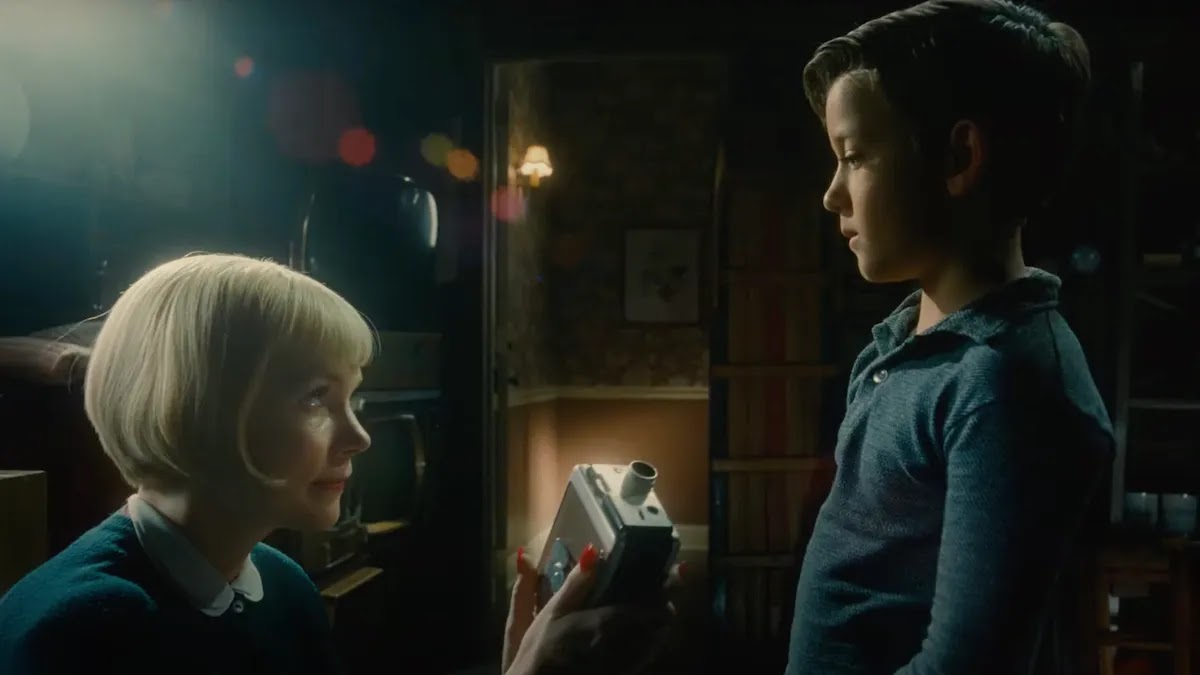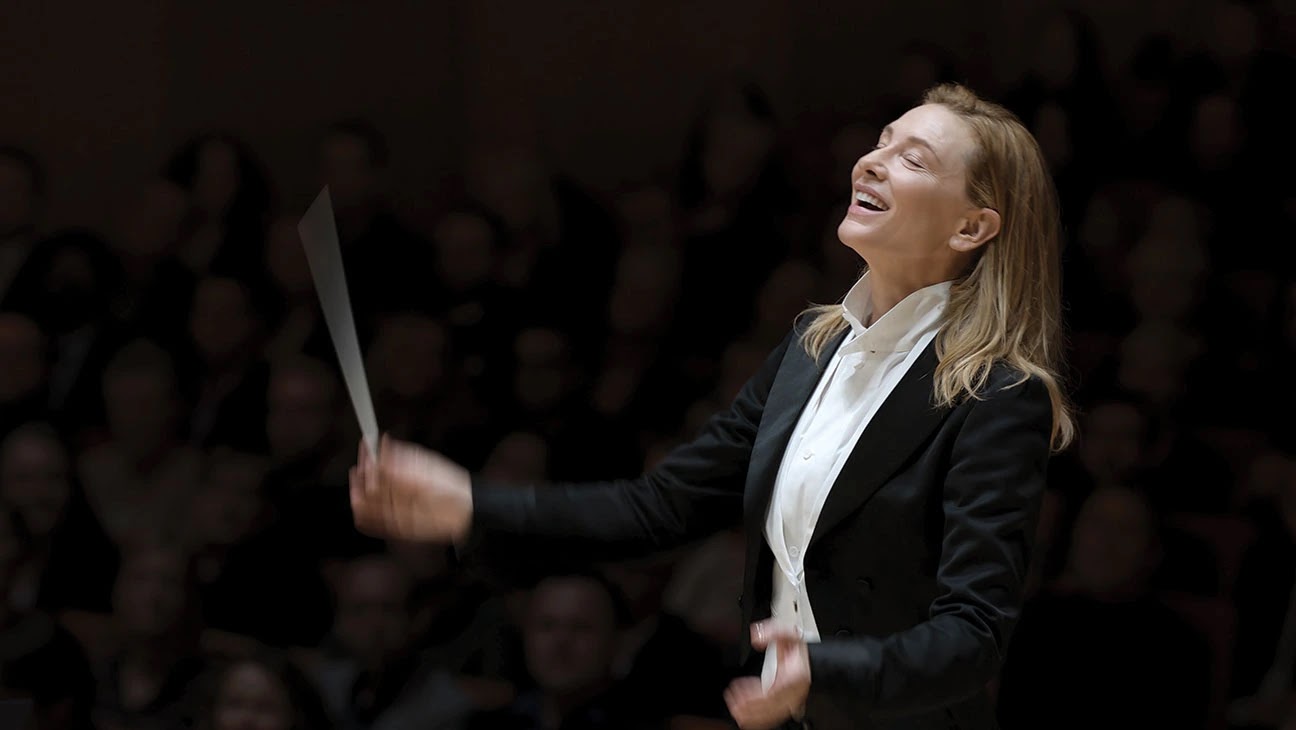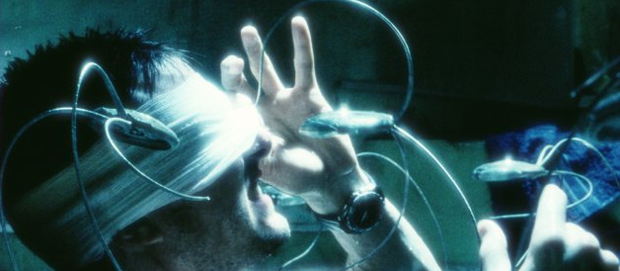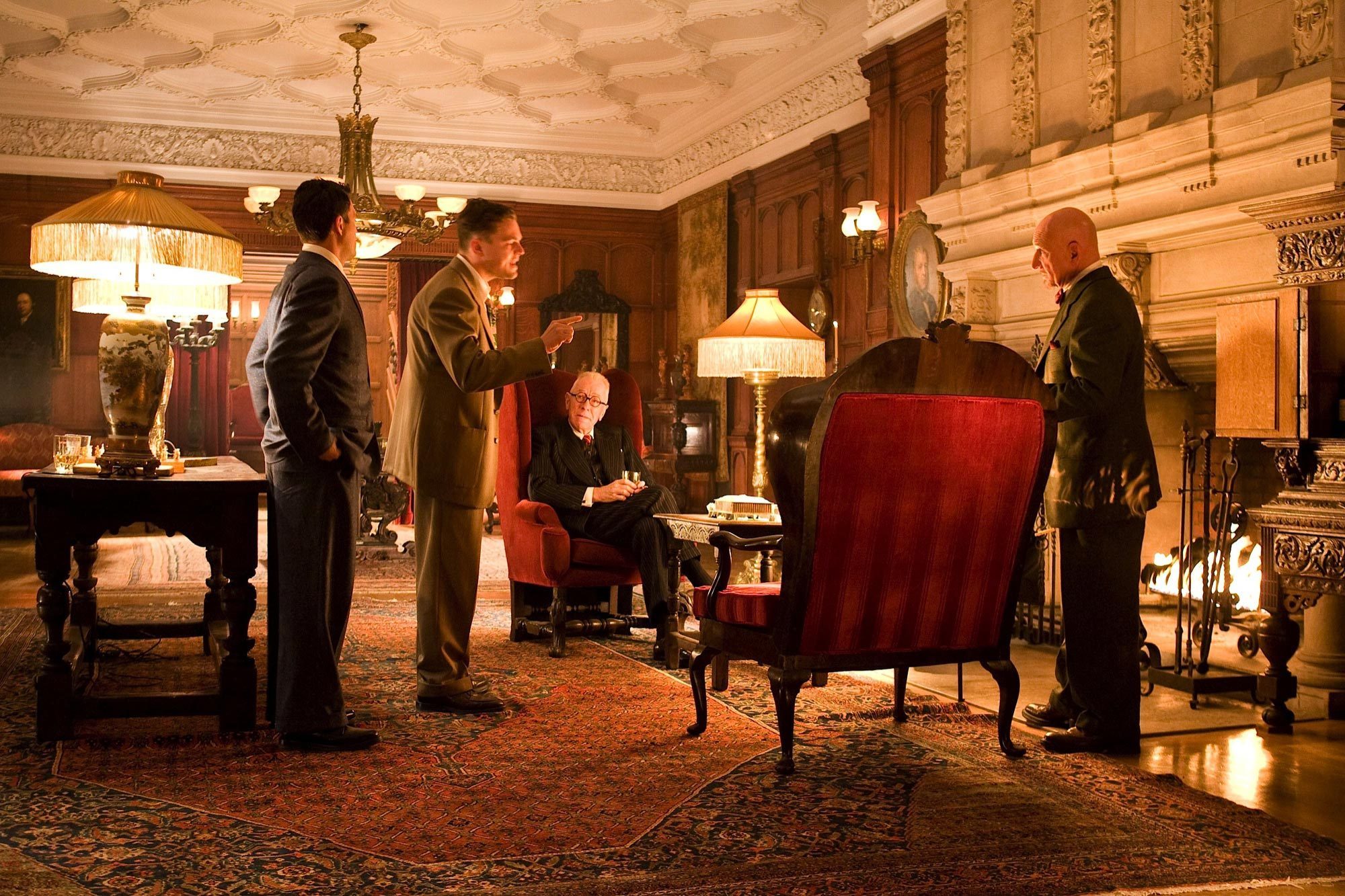I don't want to do too much pre-amble, so let's get to the categories
BEST PICTURE
I've found the last couple of Oscars pretty quiet in terms of the Best Picture line-up. The films nominated- while several of them great- haven't been the films I think general audiences were really interested in. We haven't had a Joker, Black Panther, Once Upon a Time in Hollywood or even Little Women or 1917. West Side Story didn't do well at the box office and Dune isn't really a crowd-pleaser. This year, I think that could change. If I was running the Oscar campaign for Paramount, I'd definitely being pushing Top Gun: Maverick for Best Picture, putting a emphasis on the "Movies are back" narrative and it being the biggest movie of the year. I'm wondering if Wakanda Forever and Avatar: The Way of Water- sequels to Best Picture nominees- could also get in. We usually don't have follow ups to Best Picture nominees but with sequels in general there's always the "Can you do it again?" challenge. If the Academy wants to go for the Indie blockbuster, then Everything, Everywhere, All at Once, is right there. I don't see the older members of the Academy taking to it but with the Oscars trying to be more adventurous in recent years there's a good chance it'll be there.
If they want to go safe, then Steven Spielberg's autobiographical The Fabelmans is right there. Sam Mendes' Empire of Light- about a romance taking place in old movie theatre- also seems a like safe choice. That one stars Olivia Coleman and Colin Firth
Darren Aronofsky's The Whale- starring Brendan Fraser and Andrew Dominick's Blonde- with Ana De Armas as Marilyn Monroe could get in but they may be more acting contenders than Best Picture ones. The Wonder (that other Florence Pugh movie), about an 1800s Irish village where a girl has supposedly not eaten for three months without perishing, is maybe taking the prestige period piece spot though that may also only be an acting play. It won't happen but it would be funny if Don't Worry Darling actually got a Best Picture nominee (and become fourth film to win the top five.) My Policeman (Starring Pugh's DWD co-star Harry Styles) has gotten mixed reviews so I'm not feeling it for Best Picture.
I just saw The Woman King- a historical action film about the all-woman unit of warriors who protected an African Kingdom in the 1800s. It has the right blend of strong story and rousing action- think Gladiator or Braveheart- that could help get in.
Then there's Elvis, one of the most popular films of the years about one of the 20th Century's most popular entertainments. I think it could be the Bohemian Rhapsody of the year- especially with Austin Butler being a frontrunner for Best Actor. Like Top Gun: Maverick, the "People are going back to the movies" narrative should be pushed. I don't know if Jordan Peele's Nope has much of a chance in Best Picture (I think it's hard to replicate the impact of Get Out) but it could if campaigned right.
The reviews for Alejandro Gonzalez Inarritu's 8 1/2 inspired Bardo have been mixed but the Academy does like him so I think it could make it, especially since they T do love films about filmmaking. Florian Zeller's The Son is his follow-up to The Father and definitely has the credentials for a Best Picture nominee (a more traditional one compared to Zeller's previous film) though I have a feeling it's a more of a potential acting player.
Knives Out didn't get in for Best Picture but the reviews for its sequel Glass Onion are just as good or better than its predecessor and the good-will towards the original could push it in to the line-up.
BEST DIRECTOR
I already mentioned Spielberg, who may be looking at his third Best Director Oscar. Can you imagine if James Cameron gets in? That'd be quite the battle of titans. If Top Gun: Maverick gets in I don't see its director, Joseph Kosinki gets in. Ryan Coogler is due a nomination one of these days but I don't know if he's getting in either. Sam Mendes has a shot for Empire of Light seems but the reviews have been mixed- this could just end up being a showcase for the actors to get in.Darren Aronofsky hasn't gotten a nomination since Black Swan but I think The Whale has a strong possibility of bringing him his second nomination, though as I said earlier it may just be an acting contender, similar to Andrew Dominick's chances for Blonde.
Sarah Polley could become only the eighth woman to be nominated for Best Director for Women Talking. Gina Prince-Bythewood could be the ninth if she gets in for The Woman King. It won't happen but Olivia Wilde for DWD would be an exciting inclusion
Previous Best Director winner Damian Chazelle (the youngest winner in history) is in contention for Babylon, which has been compared to The Wolf of Wall Street. Chazelle didn't get in for First Man, but he'll probably be back in the race for this one. The reviews for Glass Onion are looking good so does Rian Johnson (nominated for Best Original Screenplay for the first film) have a shot at it his first Best Director nomination? It definitely would make certain peoples' heads explode.
BEST ACTRESS
Despite the weak reviews Florence Pugh has been praised for her performance in DWD. However, she probably has a better shot with The Wonder, though DWD seems like the showier role (and Pugh no doubt can be a showy, actorly and gimmicky performer). I did think it was Pugh's year earlier this year but I'm wondering if she gets left out this year. There's a risk of vote if both performances get plenty of votes.
I've read that it's Cate Blanchett's Oscar to lose for Tar- Todd Fields' first film since 2006's Little Children, in which she plays a brilliant music conductor. Even without seeing the film, I get why people are saying that. Like Daniel Day-Lewis, Blanchett is unstoppable when she gets a role like this. However, Blanchett might have a challenger in Michelle Yeoh for EEATO. It'd be such a unique performance and performer to win.
As I've been working on this piece something major happened, which is Michelle Williams going lead for The Fabelmans. I think she had a pretty easy win in Supporting Actress whereas Best Actress is perhaps too competitive. Katy Rich's article on the switch made a satient point that mom characters often get sidelined in to Supporting Actress and Williams going for Best Actress makes a statement that the mom can be a leading character. Whatever happens Williams going lead makes both Actress categories more interesting now.
I'm hearing Blonde is a really rough watch, so I wonder if that'll hurt Ana De Armas' chances if academy voters switch it off before finishing it. She is the most consistently praised thing about the film and hopefully for her get in the top 5.
Olivia Coleman is coming for fourth nomination (third in Best Actress) for Empire of Light. She's becoming a staple of the ceremony and one of our most reliably great actresses. Amsterdam is getting very negative reviews, so Margot Robbie has a better shot with Babylon. I'm thinking The Woman King gets into Best Picture and if that's true than I have to predict Viola Davis will get in for Best Actress,
Jennifer Lawrence may also be back in the race for Causeway, in which she plays a soldier with a brain injury attempting to incorporate back into civilian life. The reviews for her and Brian Tyree Henry have been strong, and it sounds like this may be one of Lawrence's more subtle and least affected performances. Then there's Women Talking's Rooney Mara, whom if she gets in, will be the second actor Sarah Polley has directed to an Oscar nomination- after Julie Christie in Away From Her.
BEST ACTOR
This year definitely feels like it's between Brendan Fraser and Austin Butler for The Whale and Elvis, respectively. This could be Fraser's moment, but it also has the feeling of a Mickey Rourke/Michael Keaton situation where the comeback narrative gets derailed by an actor playing a real person (Sean Penn, Eddie Redmayne).
Colin Farrell is arguably one of our most due actors when it comes to Oscar, and he'll be getting his first nomination for Martin McDonagh's The Banshees of Inisheran. The other Colin, Firth, is also aiming for his third nomination for Empire of Light (he was nominated for A Single Man and The King's Speech back-to-back, winning for the latter.)
What could shake up the race is the inclusion of Tom Cruise for Top Gun: Maverick. Cruise may be the last movie star without an Oscar so, again, if I was running Paramount's Oscar campaign, I'd be pushing that narrative. I'm not certain he's getting in this year, but it'd be one of the year's most significant acting nominations since he hasn't been nominated since Magnolia.
I'm also not certain Hugh Jackman is getting in for The Son. same goes for Daniel Gimenez Cacho for Bardo- due to both films' polarizing reactions, though it's best to remember that the Academy aren't critics. I don't know if Daniel Craig is being pushed for Best Actor for Glass Onion or Supporting. Either way, I'd like to see him get in, Knives Out didn't get in any of the acting categories (though I think Craig was my Best Supporting Actor winner that year) so maybe that can change this time.
BEST SUPPORTING ACTRESS
As I discussed earlier, Michelle Williams is being campaigned for Lead, so it leaves this race open for someone else to win. I assumed Williams was going to do a Patricia Arquette/Laura Dern this year, winning for her career.
Jessie Buckley will ride her nomination for Maggie Gyllenhaal's The Lost Daughter in to another one for Women Talking. Claire Foy had one of those "supposed to be nominated" performances for First Man). We also have Nina Hoss and Noemie Merlant in Tar.
Sadie Sink will get the "Welcome to the club" nomination for playing Brendan Fraser's daughter in The Whale and possibly be the upset winner, as well as one of the youngest winners at 20. I'd love to see Stephanie Hsu in for EEATO, one of the more complicated villain roles in recent memory and arguably the film's heart. Her co-star in the film, Jamie Lee Curtis, is low in the rankings but that'd be an amazing first nomination for the legendary Curtis.
Jaenelle Monae is said to be the standout in Glass Onion and has already starred in a Best Picture winner and nominee in the same year (Moonlight and Hidden Figures, respectively) so she already has some cred with the Academy. No one from Knives Out made it into the acting categories (though Craig was my supporting actor winner that year I believe) but that could change with its sequel.
After seeing The Woman King, Viola Davis' co-star Thuso Mbedu is perhaps the film's standout performance. While she arguably belongs in lead, younger and newer actors typically campaign in the supporting categories
I recently saw Ruben Ostalnd's Triangle of Sadness at The Atlantic Film Festival and Dolly De Leon as the cleaner of a luxury cruise that becomes shipwrecked- giving her the opportunity to become the leader- is a dark horse contender that I also want to happen.
I'm surprised there isn't more buzz around Kila Lord Cassidy for The Wonder- the story is so much about Pugh's relationship to that girl. If Pugh is getting buzz, so should she.
BEST SUPPORTING ACTOR
Ke Huy Quan is terrific in EEATO, and I want to see him win. Brendan Gleeseon, like Farrell, is getting his first career nomination for The Banshees of Inisheran. Gleason is a wonderful actor, so it'll be great to see him amongst the nominees. Paul Dano and Tobey Maguire are also possibly in contention for their nominations for The Fablemans and Babylon, respectively. A Tobey Maguire comeback wouldn't be a surprise now after the latest Spider-Man movie.
Speaking of The Fablemans, Judd Hirsch is pretty high in the predictions for the film. Hirsch is a beloved icon and was nominated in this category for Ordinary People over forty years ago. He could be the sentimental, career recognition winner this year. Brad Pitt won in this category in the last pre-Covid Oscars for Once Upon a Time in Hollywood could be back here for another Hollywood-themed film in Babylon.
So, is Tom Hanks getting in for his oddball performance as a real-life oddball, "Colonel" Tom Parker in Elvis? Maybe so. It's one of those "Is this is good or bad" performances where the entertainment factor outweighs whatever actual quality there is to the work.
OTHER CATEGORIES
Original Screenplay- The Fablemans, Triangle of Sadness, Bardo, EEATO, The Banshees of Inisherin, Babylon, Amsterdam, Tar, Elvis
Adapted Screenplay- Glass Onion, The Son, Blonde, The Whale, The Wonder, My Policeman, White Noise
Cinematography- Bardo, Avatar: The Way of Water, The Fabelmans, Blonde, Babylon, EEATO, The Whale
Production Design: Wakanda Forever, Babylon, Don't Worry Darling, Elvis, Babylon, The Fabelmans,
Score: Don't Worry Darling, The Fabelmans, The Whale, Blonde, Avatar: The Way of Blonde
Make-Up: The Whale, Blonde, Elvis, EEATO
Editing: Blonde, Top Gun: Maverick, Elvis, The Fabelmans, EEATO
So, what are your thoughts on this year's Oscar race? Do you even care? Comment and let me know.













